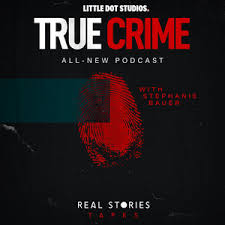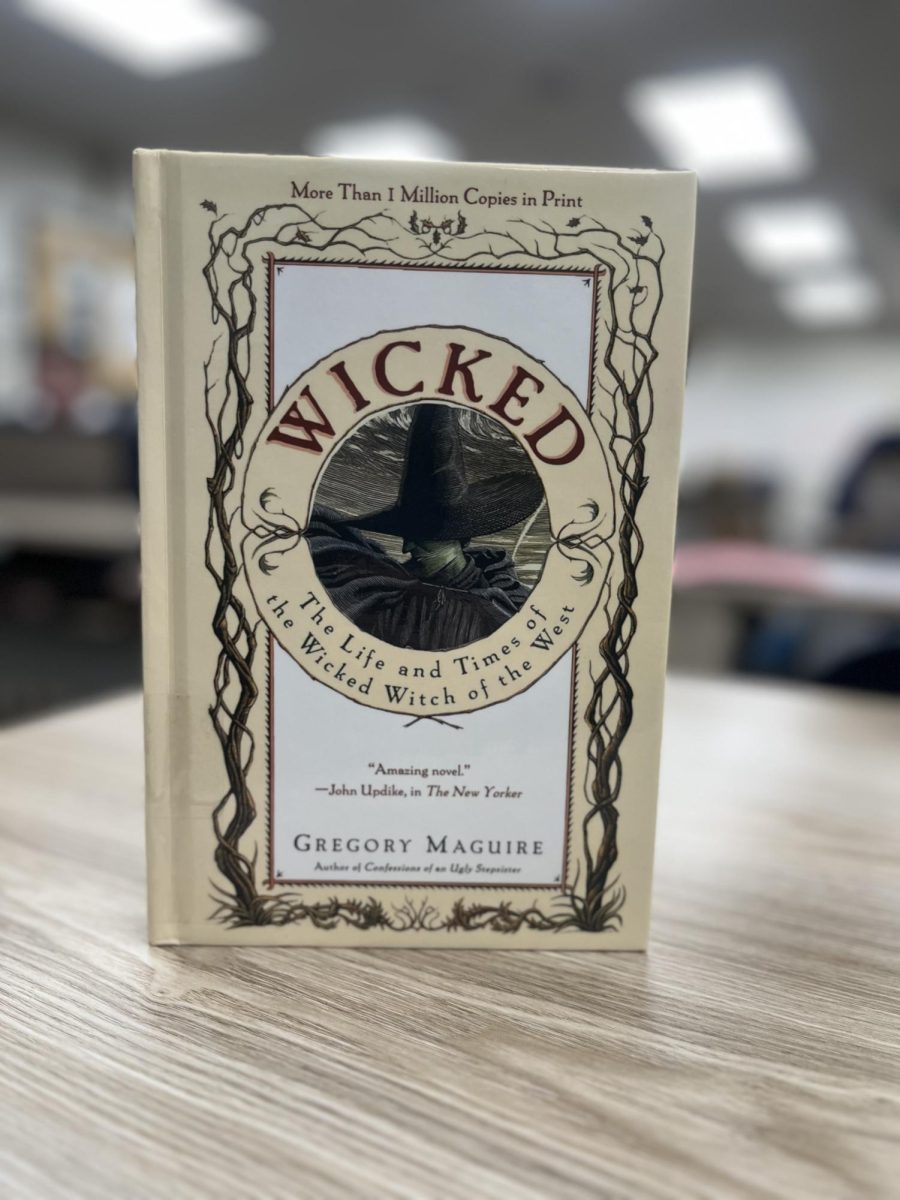True crime: a genre so binge-worthy it’s practically a personality trait. From Netflix marathons to TikTok conspiracy theories, we’re hooked on stories of gruesome deeds and courtroom drama. But while we’re sipping our lattes and gasping at plot twists, one question looms: is true crime really entertainment, or are we just exploiting tragedy? Spoiler alert: the answer is messier than a lousy alibi.
Why are people so entertained by true crime? Why do masses of people love it so much? Why did the Romans love the gladiator fights, and why is the only thing that can get an entire hockey stadium to stand up and cheer is a player landing a solid right hook on another player’s jaw? It’s because we, as humans, have an inherent affinity for violence. Many people don’t like to admit it, but it’s always there. But there’s just something morbidly fascinating about hearing or seeing a true crime. It’s not a made-up scenario; it really happened.
However, there’s something unsettling about the way true crime turns villains into anti-heroes. Case in point: Zac Efron’s portrayal of Ted Bundy in Extremely Wicked, Shockingly Evil, and Vile (a title so extra it screams “Please nominate me for an Emmy”). Sure, Bundy was manipulative and charming, but casting a Hollywood heartthrob better known for high school musicals? That’s just putting glitter on a crime scene. (Not to mention, Ted Bundy is not even close to being as attractive as Zac Efron…)
And this isn’t just a Hollywood problem. In 2018, real-life criminal Cameron Herrin became TikTok’s darling after killing a mother and child in a street race, with fans claiming he was “too good-looking” to go to jail. A petition to free him racked up 28,000 signatures (because justice is optional if you have good bone structure). A 2010 Cornell study found that attractive defendants often get lighter sentences. Looks kill, but they also reduce jail time.
As for casting “conventionally attractive” actors or actresses to play the criminals in true crime shows or movies, many times, this reflects real life and what actually took place. Many criminals were considered highly attractive in real life. Ted Bundy proposed to a woman while in court. Many people thought Jeffery Dahmer was too good-looking to be a killer too. Even in the recent case of Luigi Mangione, we can see that killers are sometimes good-looking despite their terrible deeds.
So, are we supposed to not explore that aspect of their stories? It would be a disservice to everyone involved to leave out an important detail such as this. This also keeps true crime media outlets from hiring someone they find “conventionally unattractive” and feeding into the stereotype that only ugly people can commit horrible atrocities. Staying true to the real-life story that the criminals were attractive forces people to widen their views on what a criminal “should” look like, reminding people that their preconceived notions on the appearance of a criminal are wrong. This can also better prepare people to protect themselves. Someone may not look like they did something so terrible, but there are plenty of examples of pretty people committing crimes.
While we obsess over the villains, victims are often relegated to the shadows. Media companies don’t need permission to produce content about real-life tragedies, leaving families blindsided and traumatized. Netflix’s Monster: The Jeffrey Dahmer Story is a prime example. Eric Perry, cousin of victim Eroll Lindsay, described the show as “re-traumatizing.” Worse, the victims’ families weren’t even consulted, let alone compensated. Imagine seeing your darkest moments turn up on someone’s Instagram thirst trap.
Most crimes, court proceedings, and police reports are a matter of public record. News and other media outlets don’t legally require consent to report on crimes. If information about the crime is already public, then how is a true crime report that much different from the information all over the news? Would it be respectful to consult the victim’s families – yes, but is it legally required – no.
Podcasts aren’t innocent, either. Shows like Rotten Mango admit to spicing up real cases with fictionalized drama, while others coin catchphrases and even sell merchandise, turning victims’ pain into profit. Nothing says “we care,” like a mug emblazoned with “Stay Sexy, Don’t Get Murdered,” purchased from your favorite true crime show.
There’s also such a thing as the “right” kind of victim. True crime overwhelmingly focuses on white female victims. Why? Because the genre’s biggest audience is white women. But this selective storytelling sends a grim underlying message: crimes against other groups just don’t matter as much. They aren’t as sensational. The media simply cares less.
Not to mention that these white women must pass a disturbing “purity” test. Victims can’t be too rebellious or too promiscuous, or suddenly, the narrative shifts to “Well, maybe they were asking for it.” It’s victim-blaming with a side of moral policing, and frankly, it’s outdated.
Ethical storytelling that prioritizes telling victims’ stories with respect and dignity can actually affirm and empower victims’ voices and spark change in society. True crime has the ability to shed light on systematic issues and inspire people to advocate for change and make the world a better place. In a way, true crime can prevent crime by spreading awareness about certain criminals and ways they break the law.
When true crime enthusiasts decide to dabble in playing detective, they too often swap logic for likes. TikTok is flooded with fan theories, many of which are about as accurate (if not less) than the predictions of the TikTok horoscope queens. (But that’s another article). Innocent people are accused, cases are derailed, and lives are turned upside down– all in the name of “citizen sleuthing.” It’s another form of cancel culture, except instead of A-list celebrities, it’s a victim’s brother who’s suddenly subject to scrutiny, death threats, and even worse.
There’s nothing wrong with people having their own opinions about the facts of a case. I mean, have you ever heard of free speech? However, I do want to take this moment to say that threatening or actually harming anyone in any case is wrong. AND true crime has even helped solve multiple cold cases by bringing renewed attention to a crime. This helps victims get the justice they deserve, and the criminals face the consequences of their actions.
Look– if you’ve ever binged a true crime series and double-checked your locks at 2 a.m., you’re not alone. The genre thrives on fear, leaving viewers with heightened anxiety, paranoia, and even PTSD symptoms. Turns out that consuming murder mysteries that feed into your darkest worries isn’t exactly a recipe for inner peace.
Some individuals find immense comfort in true crime. Learning more about crime can also help people feel more in control of their safety because they can pick up warning signs more easily and know survival strategies better. True crime stories serve as modern cautionary tales and help people recognize potential threats in the ever-changing nature of crime.
For some people, it fulfills their sense of justice. Seeing criminals get what they deserve is comforting to them. People always want to know why others do the things they do. There is a whole subcategory of psychology and sociology called criminology fully dedicated to explaining why criminals commit crimes. True crime allows the everyday person to understand the minds of criminals from the comfort of their own houses. Other people enjoy the crime-solving aspect of true crime. They like to piece together the clues, determine the motive, and see if they are right.
True crime doesn’t have to be a moral dumpster fire. When appropriately implemented, it can shine a light on injustice, amplify forgotten voices, and even help solve cold cases. But to do this, creators need to reevaluate their approach. Stop glorifying killers. Consult victims’ families. Ditch the sensationalism. And maybe, just maybe, prioritize humanity over drama. Some true crime loyalists may get lost in the shuffle. But the right kind of true crime fan would stay.
Until then, next time you hit play, ask yourself: do you think that listening to true crime is good or bad? Done right it can be a highly entertaining form of media. But like everything, it can have its downsides. So, while some people might love it and others might hate it, the true crime genre is walking a fine line between investigative journalism– and a guilty pleasure we should all feel a little guiltier about. It’s up to you to figure out which one it is.







